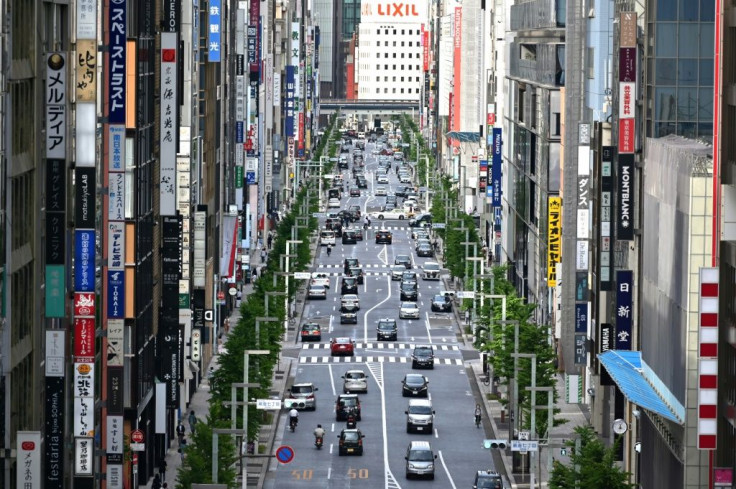Coronavirus In Japan: Prime Minister Abe Lifts State Of Emergency As New Cases Decline

Prime Minister Shinzo Abe confirmed Monday that Japan had lifted nationwide state of emergency restrictions. Restrictions had been lifted in most of the country’s prefectures before this announcement, but now the declaration has been expanded to Tokyo, three prefectures surrounding it, and the island of Hokkaido.
“We've set some of the most strict criteria in the world to lift the declaration,” Abe said at a press conference, as reported by NHK. “And we concluded that prefectures across the country have met that standard.”
Japan has been under a state of emergency lockdown in all 47 prefectures since mid-April, when daily new cases topped out over 1,000. Abe was initially criticized for his delayed action compared to other countries, which began locking down around mid-March.
Recently, new cases in the country have begun to decline significantly, prompting the government to begin rolling back lockdown protocols. According to Stat News’ COVID-19 tracker, Japan reported only 14 new cases on Sunday, down drastically from the 112 reported Saturday.
Abe touted his country’s decline in cases to what he called the “Japanese model,” which includes the state of emergency shutdowns and the nation’s rigorous social distancing rules. Despite the move to lift certain restrictions, Japanese officials are still urging citizens to avoid crowded public spaces as much as possible.
“Recently, new infection cases have fallen below 50 for the entire nation,” Abe said. “And what was once nearly 10,000 hospitalized cases — that has now fallen below 2,000.”
According to Johns Hopkins University, Japan has seen over 16,500 cases of the novel coronavirus and 820 reported deaths.
© Copyright IBTimes 2025. All rights reserved.





















